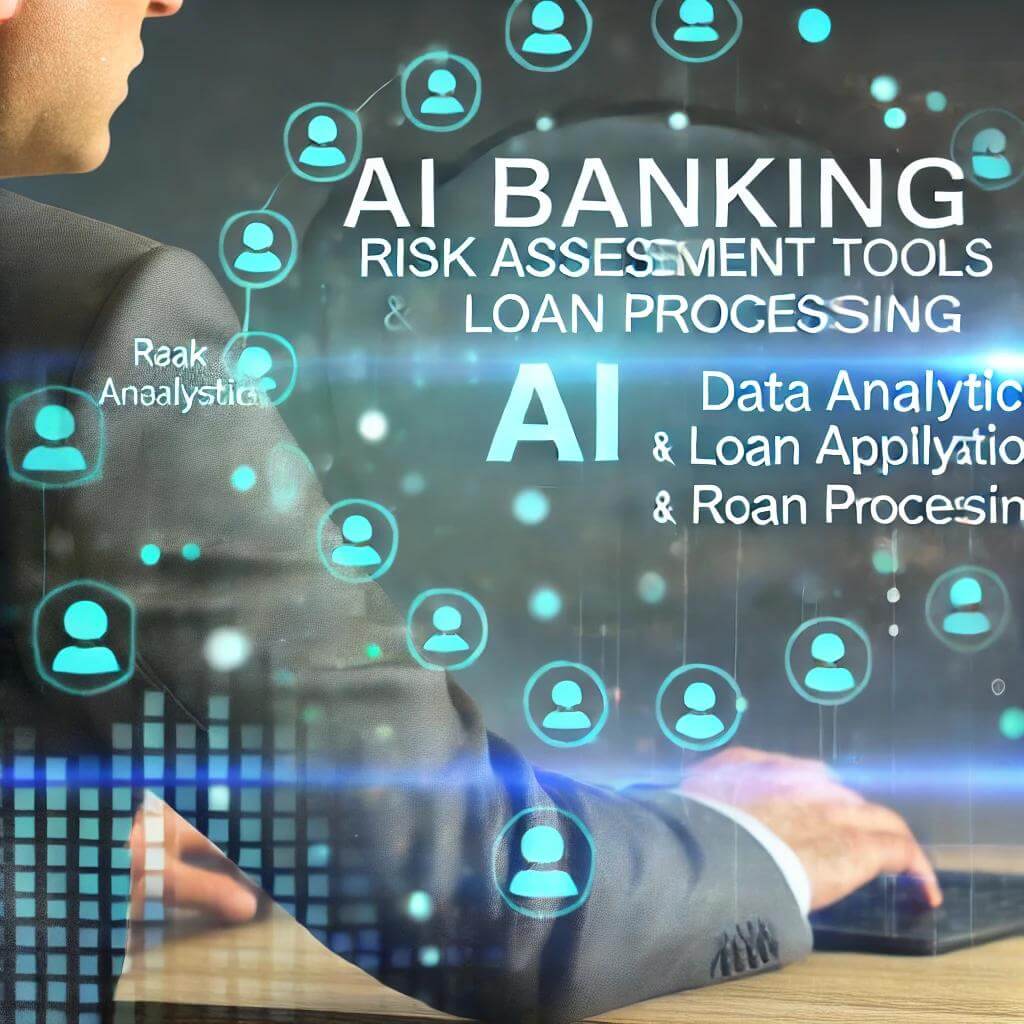AI in Investment: Robo-Advisors & Predictions
In recent years, Artificial Intelligence (AI) has significantly impacted the world of investments. From robo-advisors to market predictions, AI is transforming how we manage and grow wealth. In this article, we’ll explore how AI is being used in investment strategies and how it benefits both individual investors and financial institutions.
Robo-Advisors: The Future of Personalized Investing
Robo-advisors have revolutionized the investment world by offering automated, personalized investment advice based on algorithms. These AI-powered platforms assess an individual’s financial situation and provide investment strategies that align with their goals, risk tolerance, and time horizon.
How Robo-Advisors Work
Robo-advisors start by collecting key data from users, such as:
- Income and savings
- Investment goals (e.g., retirement, short-term gains)
- Risk tolerance (how much risk the investor is comfortable with)
The AI system then uses this data to create a personalized investment portfolio, typically composed of stocks, bonds, or other assets. Robo-advisors constantly monitor the performance of the portfolio and automatically rebalance it as needed to keep it aligned with the investor’s goals.
Advantages of Using Robo-Advisors
- Low Cost: One of the main benefits of robo-advisors is that they offer professional investment management at a fraction of the cost of traditional financial advisors.
- 24/7 Monitoring: Unlike human advisors, robo-advisors never sleep. They monitor investments constantly and make adjustments when necessary.
- Personalization: AI-powered advisors customize portfolios based on each investor’s unique needs and goals.
Market Predictions: AI’s Role in Predicting Trends
AI’s ability to analyze vast amounts of financial data in real time has made it a game-changer in market predictions. By examining historical data and current trends, AI can forecast market movements, identify patterns, and even predict potential crashes or booms.
How AI Predicts Market Trends
AI systems analyze a combination of historical data, real-time news, and social media sentiment to identify emerging trends in the financial markets. These predictions are then used by investors and financial institutions to make informed decisions about buying, selling, or holding assets.
Benefits of AI in Market Predictions
- Speed and Efficiency: AI can process data much faster than any human, allowing investors to act quickly in volatile markets.
- Reduced Human Bias: AI relies purely on data, which eliminates the emotional or irrational decision-making that can sometimes affect human investors.
- Risk Management: AI can help investors mitigate risk by identifying potential market downturns before they happen.
AI for Portfolio Management
Another area where AI is making a significant impact is in portfolio management. With AI-driven tools, investors can now optimize their portfolios for better returns and reduced risks.
How AI Manages Portfolios
AI systems continuously analyze market conditions and portfolio performance. Based on the investor’s goals, AI can recommend reallocations or suggest new assets to invest in. This real-time decision-making allows portfolios to stay aligned with market conditions, ensuring better performance over time.
| Feature | Benefit |
|---|---|
| Real-Time Adjustments | Ensures portfolios stay optimized |
| Data-Driven Decisions | Reduces risk by relying on market data |
| Continuous Monitoring | Offers 24/7 portfolio management |
Sentiment Analysis in Investment Strategies
Sentiment analysis is another powerful tool that AI brings to the investment world. By analyzing public sentiment through social media, news articles, and other sources, AI can gauge how the general public feels about specific stocks, industries, or even the economy as a whole.
How Sentiment Analysis Works
AI scans millions of online data points—such as tweets, blog posts, or news stories—and identifies positive, negative, or neutral sentiments about certain companies or stocks. By understanding market sentiment, investors can make better decisions about when to buy or sell stocks.
The Impact of Sentiment Analysis
- Early Warnings: AI can detect shifts in sentiment before they reflect in the stock price, giving investors a head start.
- Trend Detection: AI can track long-term sentiment trends to help investors predict how certain industries or companies might perform in the future.
AI in Risk Management for Investments
Risk management is a critical part of any investment strategy. AI tools are now helping investors and institutions better manage and mitigate risks.
How AI Improves Risk Management
AI systems can detect patterns of risk by analyzing a large variety of data sources. These systems continuously monitor financial markets, investor behavior, and economic conditions to flag potential risks.
- Predicting Volatility: AI systems can predict market volatility and advise investors on when to be more cautious.
- Monitoring Fraud: In addition to market risks, AI can help detect and prevent fraudulent activities within investment portfolios.
| Feature | Benefit |
|---|---|
| Predicting Volatility | Helps investors prepare for market downturns |
| Fraud Detection | Prevents losses from fraudulent activities |
Challenges of Using AI in Investment
While AI offers many advantages, there are still challenges to overcome in the investment world.
Data Quality and Accuracy
AI relies heavily on the quality of data it receives. If the data used to make predictions or manage portfolios is inaccurate or incomplete, it can lead to poor investment decisions. Therefore, ensuring the quality and accuracy of data is essential for successful AI-driven investments.
Regulatory and Ethical Considerations
AI’s growing role in investments also raises regulatory and ethical concerns. For example, how should AI systems be regulated to prevent market manipulation? And what happens if an AI-driven decision leads to significant financial loss for an investor? These are questions that still need to be answered as AI becomes more prominent in financial markets.
Conclusion
AI is rapidly transforming the investment world, making it easier for individuals and institutions to manage portfolios, predict market movements, and mitigate risks. Whether through robo-advisors, market predictions, or sentiment analysis, AI’s impact on investment is undeniable. As the technology continues to evolve, it will likely become an even more integral part of investment strategies.


Post Comment